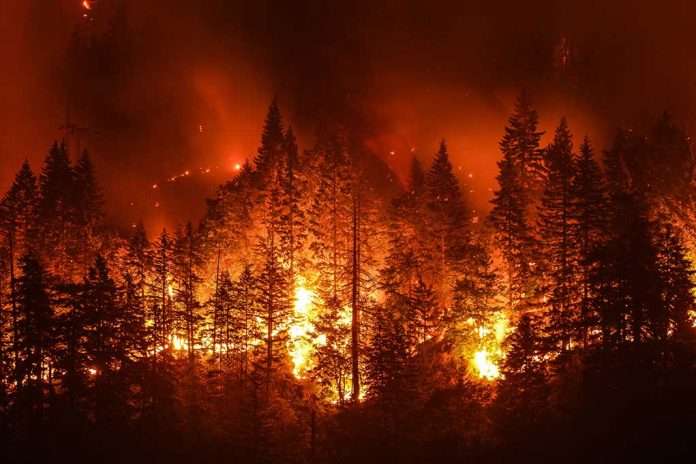
Many parts of California continue to grapple with an onslaught of disasters, particularly wildfires. All in all, Mother Nature seems to have it out for the Golden State, and it’s time we took a closer look at the human cost of these problems.
The Harsh Reality of Losing Everything
Rick Pero’s story is a stark reminder of the devastating impact natural disasters can have on individuals and families. Losing not one, but two homes to wildfires in California, Pero’s experience highlights the emotional and psychological toll these events take on those affected.
Pero lost one home back in 2018’s Camp Fire, and reports indicate he just recently lost another in Forest Ranch amid Park Fire. He told reporters that he and his wife also lost one of their cats in the most recent incident. He took the time to reminisce about his cat’s life, and expressed gratitude that he is now at peace.
A non-profit is currently helping Pero and his wife. According to him, he is now considering leaving the state entirely for safety reasons.
The loss of a home goes beyond mere material possessions. It represents the loss of memories, security, and a sense of place. For many, like Pero, it can lead to a complete uprooting of their lives and a reevaluation of where they choose to call home.
Climate Change and Relocation Patterns
The increasing frequency and intensity of natural disasters, often attributed to climate change, are reportedly influencing American relocation patterns. More people are moving away from areas prone to such events, seeking safer ground and peace of mind.
According to The Daily Mail, First Street Foundation’s Dr. Jeremy Porter said that more and more, people are letting climate factors play a significant role in where they move.
This shift in population movement is not just anecdotal. A Zillow report from last year indicated that around 80% of Americans consider climate risks when buying homes. This statistic underscores the growing awareness and concern about the long-term safety and stability of certain regions.
The Economic Impact
The psychological toll of losing a home to natural disasters often goes hand-in-hand with significant economic challenges. Rebuilding or relocating can be financially devastating, especially for those who may not have adequate insurance coverage or savings.
Moreover, the broader economic impact on communities affected by repeated natural disasters can be long-lasting. Property values may decline, local businesses may struggle, and the tax base can erode, leading to a cycle of economic hardship that compounds the emotional stress on residents.
Preparing for the Future
It’s crucial for Californians – and indeed, all Americans – to be prepared for potential disasters. This includes not only physical preparations but also mental and emotional readiness.
The importance of education and preparedness in the face of various natural threats cannot be understated. Understanding the risks, having emergency plans in place, and building resilient communities are all crucial steps in mitigating the psychological impact of natural disasters.
In conclusion, the story of Rick Pero and others like him serves as a powerful reminder of the human cost of natural disasters. As we continue to face these challenges, it’s essential that we not only focus on prevention and response but also on supporting the mental health and well-being of those affected. After all, true resilience comes not just from rebuilding structures, but from rebuilding lives and communities.
Sources
- California man reveals devastating reason he may be forced to flee state: ‘We thought we were safe
- Over 80% of homebuyers factor extreme weather, climate risk into decision, survey finds
More from Around the Web
More information about ongoing fires in California:












